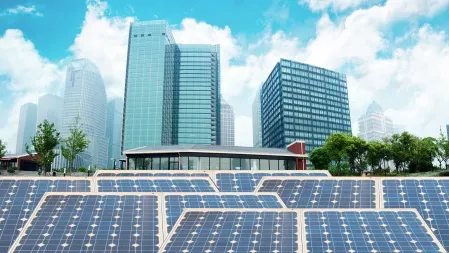
Solar power to push Malaysia’s renewables growth
The LSS3 and LSS4 programmes have expected capacities of 490MW by end-2023.
The strong growth of solar power in the country will be the key driver in achieving Malaysia’s 2025 target of having 31% of its total power capacity coming from renewables, according to Fitch Solutions.
“Our current forecast for non-hydro power renewables growth remains skewed towards solar power, as we have yet to notice any strong move by the government to advance biomass and waste growth and introduce wind power,” it said.
Fitch noted that the Malaysian government has issued solar project tenders under the Large Scale Solar programme (LSS): LSS3 in 2020 and LSS4 in 2021. The government has shortlisted 30 winning bidders for the programme, which saw 112 bids for its 20 projects as of March 2021.
LSS3 and LSS4 have an expected capacity of 490 megawatts (MW) by end-2021 and 823MW by 2023, it said.
The Ministry of Energy and Natural Resources also introduced the Net Energy Metering 3.0 which aims to encourage the installation of solar panels in properties by providing incentives for the adoption of solar panels by allowing participants to offset electricity bills by sending excess solar power to the grids.
“This will increase solar growth through decentralised solar panel implementation by at least 500MW, which is the total quota for the scheme,” it said.
Malaysia raised its 2025 renewable target in the Twelfth Malaysia Plan to 31% of total power capacity as a move towards a low carbon emissions economy, from the National Energy Plan’s 20% target set in 2018.
Its pledge to not construct any new coal plants will also pave the way to increasing non-hydro power renewables whilst retiring thermal power plants.
Fitch also said that the Green Electricity Tariff programme, which aims to enable consumers to reduce emissions by buying renewable energy, will also support the growth of renewables due to interests from multinational companies. Under the scheme, subscribers will have to pay an additional $0.009 (3.70 sen) per kilowatt-hour of renewable energy produced and be provided with a Malaysian Renewable Energy Certificate.
The government has set 4,500 gigawatt-hours of renewable power to be distributed under the programme, where nine companies and government bodies have already committed to purchase electricity.
(1 USD = 0.037 sen)








![Cross Domain [Manu + SBR + ABF + ABR + FMCG + HBR + ]](https://cmg-qa.s3.ap-southeast-1.amazonaws.com/s3fs-public/styles/exclusive_featured_article/public/2025-01/earth-3537401_1920_4.jpg.webp?itok=WaRpTJwE)
![Cross Domain [SBR + ABR]](https://cmg-qa.s3.ap-southeast-1.amazonaws.com/s3fs-public/styles/exclusive_featured_article/public/2025-01/pexels-jahoo-867092-2_1.jpg.webp?itok=o7MUL1oO)









 Advertise
Advertise


